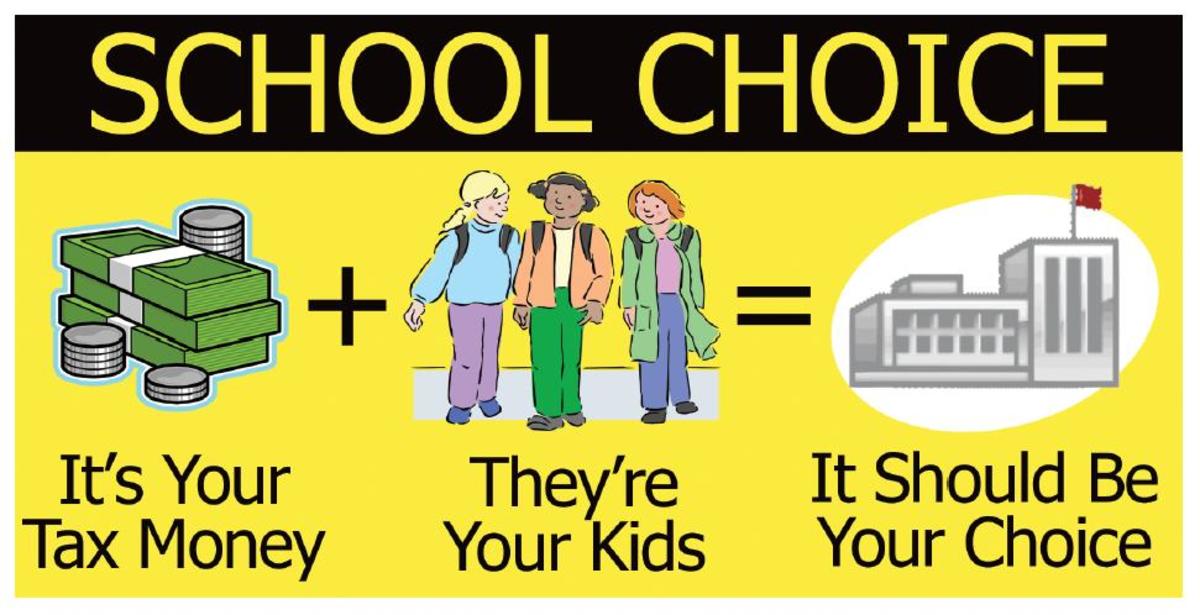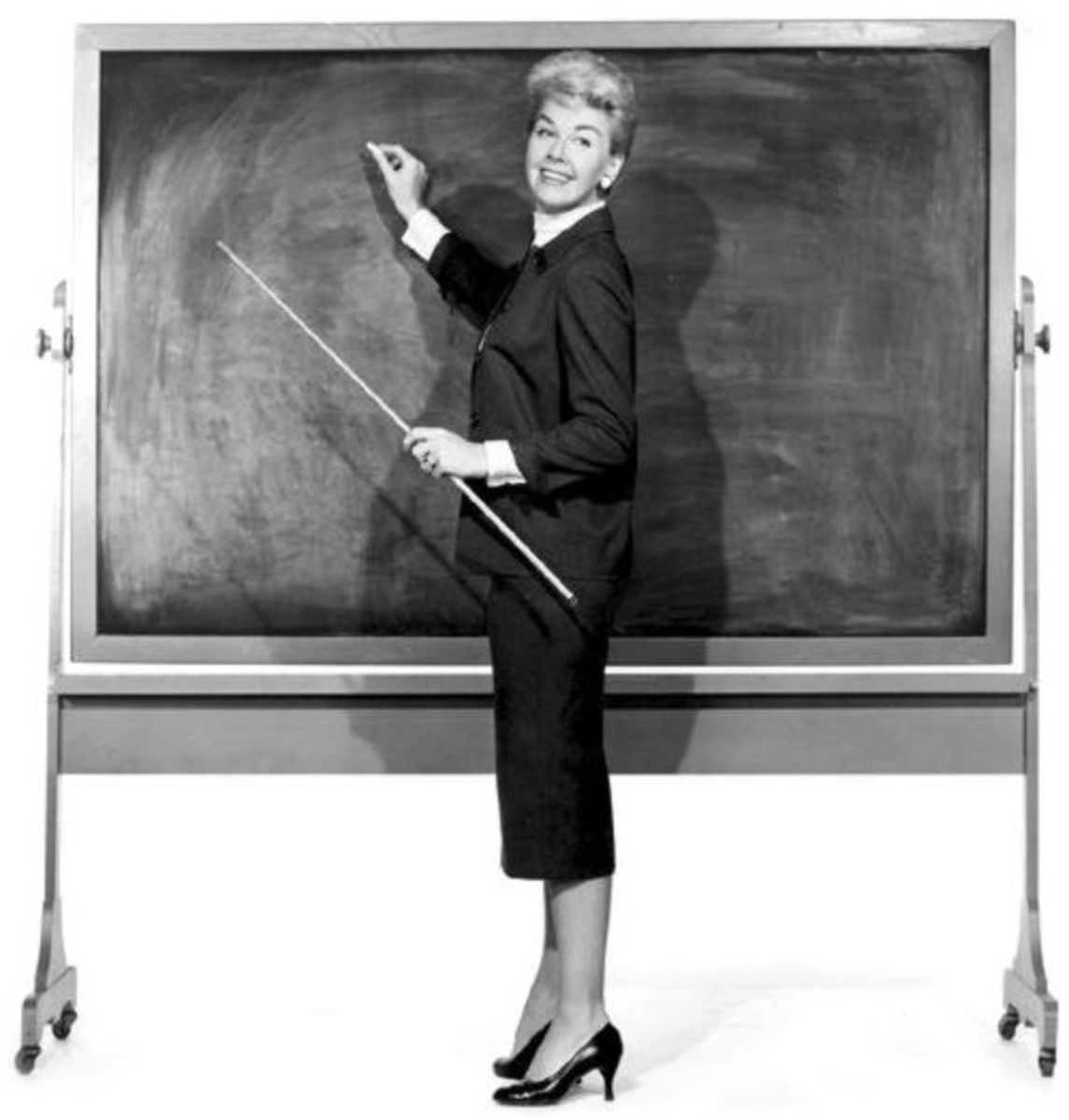Why America's Schools Fail: Part II Introduction
Part II: INTRODUCTION
Who caused the problems, the nature of the problems, and why the system is not self-correcting. Parents elect the overseers, who know that parents only want change that won't cause them to take any responsibility.
Ask not at whom the finger points;
It points at thee!
Why DO America's schools fail? This is a question that is asked so frequently in the press that I believe Americans no longer even hear it being asked, or question if it is true. Johnny graduates from high school unable to read, so he sues the school for negligence. Jimmy gets beaten up by bullies, and the school is sued for failure to provide a safe atmosphere. Suzy cannot balance her checkbook, and sues the school district for providing an inadequate curriculum. Yet because the American school system is organized-if one dare use that term-in such a haphazard and socially irresponsible manner, the schools are not responsible for any of these problems! Who, then is at fault?
A government report on the education enterprise from the late 1980s included the provocative comment "If any foreign nation was doing to the American educational system what we ourselves are doing, we would interpret the action as an act of war." Powerful words, possibly true. Yet as a nation America does little more than provide blame, lots of money, and an "it's not my responsibility" attitude.
Politicians, who have learned well what buttons to push to get the attention of voters, almost universally tell us that the schools are failing and that, if elected, they can fix the problem. Administration after administration claims the title "Education President" much as the monarchs of Britain claim "Defender of the Faith." But just as Britain's monarchs abandoned the Catholic faith that the Pope said they defended so faithfully, replacing it to adopt the Protestantism that would allow Henry VIII to divorce, so, too, has the "Education President" title become a meaningless artifact. Unlike the British monarchy, though, America's presidents almost never did anything to earn their title, certainly not since the 1950s.
(The continued use of the title "defender of the faith" by British monarchs is all the more ludicrous because the title was conferred upon a young Henry VIII for his written support of Roman Catholic policy. It was this same Henry who would later abandon Catholicism and establish his own Church of England with himself as head. In other words, the defender of the faith, in a pique of anger, left one faith to start another!)
The causes of the problem are numerous, and the blame will rest squarely on those people who claim to be most concerned, who make the most vocal arguments against the system, and who are the only ones with the true power to make changes. I refer, of course, to the parents of America's children. True, politicians, teachers, principals, schools boards, and "government" all contribute to the cancerous problem, but true responsibility rests with those who produce the children, and then expect society to teach and raise them with their hands tied. There are many aspects to the problem, and as I turn the light on in the dark little corner where these unmentionables dwell, expect to see each interest group scurry away like a cluster of roaches exposed in the kitchen at midnight. "Not I!" each will claim as it scurries for anonymity, hoping blame will attach itself elsewhere.
But there is no escaping the reality of parental culpability. Parents are the ones who fight for the rights of ten-year olds to wear "Fuck You!" t-shirts to school; parents are the ones who tell teachers to maintain discipline without any authority to do something about it; parents are the ones who allow children to watch four hours of television and then play three hours of video games instead of doing homework; and parents are the ones who insist that schools give top priority to making sure the children feel good about themselves, so don't give grades below a C. Don't blame politicians, who promise you anything in order to get your vote. They know all too well the golden rule of politics: never blame the voter for the problem. They'll say what you want to hear, make appropriate-sounding noises, and perhaps throw some money at the schools. Americans love to believe that money solves all problems, and if it doesn't, it should. But in the final analysis, don't expect the elected officials to really try to fix the schools, because their only reward will be to have parents hound them at each turn and vote them out of office at the next election.
Political impotence need not be hung solely around the neck of the president. In fact, the most onerous abuse of the educational system starts with your own locally elected school board members. These people, generally parents, all get involved for a variety of reasons. Some use the position as a springboard to other elected offices, and some enjoy the fact that they'll be listened to by somebody. Others have agendas to push regarding morality or politically correct views, and a few even think they are making a contribution to improving the schools.
But have you ever considered the qualifications of a person to be on a school board? Most of the time the only requirement is to be a resident of the school district. Being a parent often helps, but is not necessary. In many areas, teachers are not allowed to be on boards, because as a board member they would in effect outrank their principal, being the boss's boss. That would be conflict of interest or some such concept, and it keeps the most informed and appropriately trained people out of the decision making process. The remarkable result of districts with this policy is to produce the equivalent of a supreme court without lawyers, or a medical review board sans physicians. But this is hardly surprising in a society where we have systematically marginalized the teaching professionals into roles we hold in embarrassingly low esteem. More on that later.
The role of a school board varies largely dependent upon the attitudes of the combined members. Their general role is to act as a sort of board of directors, overseeing business and operations functions at their schools-are there enough janitors, are lunches provided in health-department approved environments, is money being spent according to a plan-and hiring the top-level school administration. That means they are responsible for superintendents and principals, who are supposed to be the CEOs of the system. But the giddiness that comes with elected office frequently produces board members who micromanage their appointed CEOs, overriding people with professional training in order to insert vogue ideas and faddish curricula. This is why many districts wind up in court over board decisions to avoid teaching about slavery or evolution, or introduce "new" math and other pedagogical failures. When one of these idiocies is finally shown to be flawed, it is the superintendent or principal-or teacher!-who is blamed, often dismissed, and the board moves on to the next ill-advised experiment. So bad is this situation that in some districts the senior administrator turnover rate is exceptionally high. In the Denver area, for example, some 35% of principals and superintendents leave their posts each year. The school boards, however, remain, as do the children.
In the final analysis, if you are the parent of an American school child, and unless you are part of a very small minority, your identity in the War against Education can be summed up by the slogan of Walter Kelley's character Pogo: "We have met the enemy, and they are us!" In crass capitalistic terms, parents hold the power of monopoly over all elements of American schools, including the capital (property taxes and school bonds), buyers (children), and sellers (school policy). Yet in exercising grossly uncoordinated or informed power over both supply and demand, American parents have let a potentially excellent system lapse into something less than mediocrity.
I have been teaching for thirty-four years, at levels spanning middle school through graduate school, and from my perch I strongly applaud the sentiments of people who really want to improve the system. Repeated analyses of the disturbing state of American education, notably as it relates to history/geography, science and math instruction, show us nothing either new or surprising. Given the fact that the U.S. is one of the few nations on Earth without a national educational directive, the message will need to be heard for some time to come before appropriate action will follow.
The problems associated with any reformation of American education will depend on more than fixing the causes for high rates of grammar and high school teacher attrition. Solutions will not be found in assigning more homework or starting "harder" classes. Nor will annual standardized testing help anything except the income of testing companies. The issue of malaise in the public schools is the hydra of our times, and though Heracles was able to slay his beast with the help of his nephew, the American school system's hydra will require considerably more teamwork.
The hydra that has captured the American educational system has many heads, but the heads can be grouped by category as follows: Problems in the Schools, Problems in Academia, and Problems in Government and Society. Among the more formidable individual heads of the beast are these:
1-Public schools from K through 12 are largely run by amateurs (Problems in the Schools). School boards are made up of parents, and school administrators typically have limited classroom experience. The real educational professionals, teachers, are largely ignored, overridden, or ostracized, but it is the classroom teacher that fingers point when Johnny can't read and Janie can't subtract. But next time you hear about a Governor's or President's advisory group on education, look past the names of the famous and wealthy and ask instead, "what TEACHERS were present?"
2-Grade inflation and lawsuits (Problems in Government and Society) brought against professors over grades have devalued the entire grading system. Far too many university graduates (as well as high school grads) simply do not have the knowledge or skills that a diploma should infer. They see grades as things they purchase, not as representations of things they must earn.
3-Faculty at all levels face difficult uphill struggles (Problems in the Schools and Problems in Government and Society). A majority of community college instructors are part-timers who get few if any benefits, no office space, and the most undesirable class schedules. Novice public school teachers similarly get the most difficult classes-often those with "problem" students-when these are precisely the classes that most require the presence of experienced, veteran teachers. No wonder teacher attrition hovers around 50% by the fifth year in the profession.
4-Students are neither equivalent to each other nor products (Problems in the Schools). Reworking the ideal of egalitarianism would free up students and teachers to go with their strengths. Not all students want, need, or will enter college, yet the vocational school is now a term from near antiquity. In an effort to "leave no child behind," we are willing to accept two dangerous propositions: first, children are commodities that can be mass-educated into production line products, and second, there is no standard so low that it will be deemed unacceptable so long as it can be justified by claims that no child was shortchanged.
5-Forget about "education presidents" (Problems in the Schools) and similar vote-fishing hype; as long as schools are controlled locally, any effective change must also come from home. Successful federal interventions, such as Title IX, were mainly about civil rights and social issues, not academic or vocational education. The No Child Left Behind fiasco makes noises that appeal to voting parents, but lacks either qualitative substance nor funding to sustain its implementation.
6-Get teacher certification and licensing into an intelligent format (Problems in Academia and Problems in Government and Society). As it stands now, many gifted academics reject teaching as much for all the pointless hoops through which they may jump as for the salaries. Why can't a teacher certified in one state simply transfer credentials to another instead of taking yet another standardized test of teaching skills, content area, and such? The idea that a person with a Ph.D. in a field should need to pay to take a standardized test to see if he knows his subject is ludicrous.
Fixes must come from all levels, starting with parents and family, and extending to the schools from kindergarten on up. Rarely mentioned in critiques of schools is the reality that very few science majors enter the grammar school teaching profession, yet we also know from volumes of research that grammar school-aged children are very interested in science. Bolstering science in the early grades would go a long ways towards getting long-lasting interest in the subject into and through college.
Like Heracles, who was nearly rebuffed by the ghastly breath of the hydra, many veteran educators-particularly those in the classroom-fight a considerable battle against the bureaucratic and political nonsense that passes for educational reform. Yet teachers, more than anyone, are the group most eager to see meaningful, intelligent reform instituted. Perhaps before any more well meaning outsiders come up with still more plans, ideas, or initiatives, they should first consult some teachers. Who knows, they might learn something!








